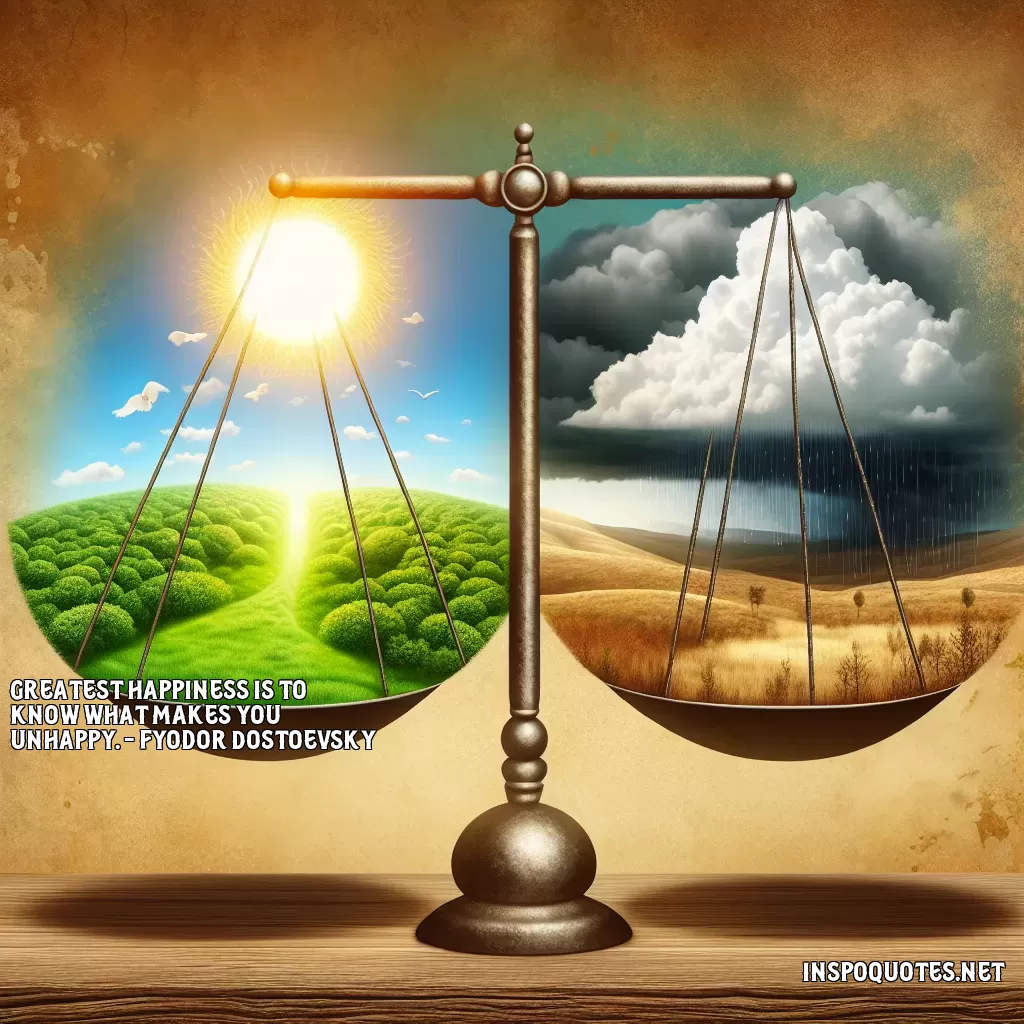
greatest happiness is to know what makes you unhappy. - Fyodor Dostoevsky
Author: Fyodor Dostoevsky
👁️ 21 views

greatest happiness is to know what makes you unhappy. - Fyodor Dostoevsky
👁️ 21 views
Fyodor Dostoevsky’s quote, "Greatest happiness is to know what makes you unhappy," delves into the profound relationship between self-awareness and emotional well-being. At first glance, it may seem counterintuitive to associate happiness with understanding one’s sources of unhappiness. However, upon deeper examination, this idea reveals its wisdom and practicality. Understanding what makes us unhappy is the cornerstone of self-awareness. It involves a conscious examination of our emotions, reactions, and the circumstances that lead to discontent. This process is not inherently negative; instead, it equips us with essential insights into our inner world. By identifying the root causes of our unhappiness, we gain the power to address and transform them. This transformation is a pathway to authentic happiness because it shifts us from being passive victims of our emotions to active participants in shaping our mental and emotional landscapes. Furthermore, knowing what makes us unhappy allows us to set boundaries, make informed decisions, and prioritize aspects of life that genuinely contribute to our well-being. It empowers us to disengage from toxic relationships, unfulfilling jobs, or harmful habits. This newfound clarity fosters resilience and emotional intelligence, contributing to more meaningful and satisfying life experiences. In essence, Dostoevsky's quote encourages introspection and personal growth. It suggests that the pursuit of happiness is not about avoiding negative emotions but confronting and understanding them. By doing so, we gain control over our lives, increase our capacity for joy, and construct a more authentic and fulfilled existence. This awareness ultimately leads to the greatest happiness because it aligns us more closely with our true desires and needs, fostering a deeper sense of peace and contentment.
Quote By: Fyodor Dostoevsky
Fyodor Dostoevsky was a renowned Russian novelist and philosopher born on November 11, 1821, in Moscow. He is best known for his deep psychological insight and exploration of existential themes in pivotal works such as "Crime and Punishment," "The Brothers Karamazov," and "Notes from Underground." Dostoevsky's literary legacy has profoundly influenced modern literature and philosophical thought, delving into the complexities of human nature and morality until his death on February 9, 1881.
Bio added on: 2025-02-16 11:57:47